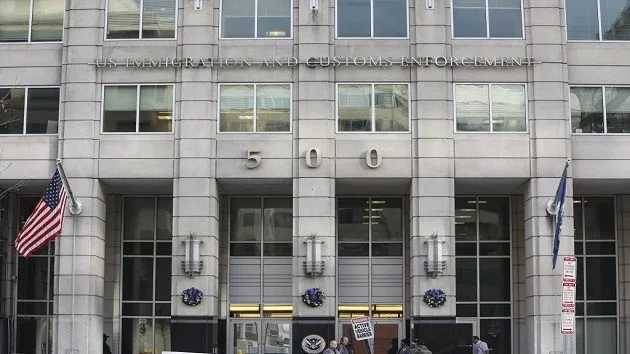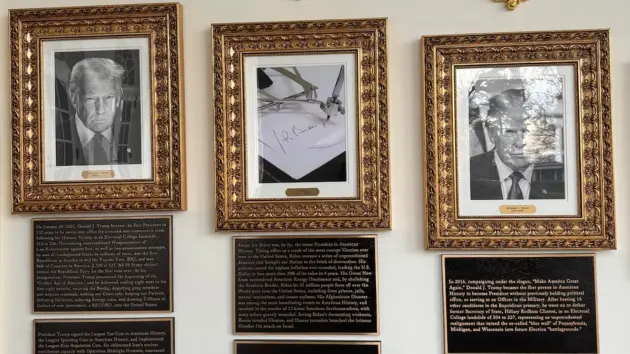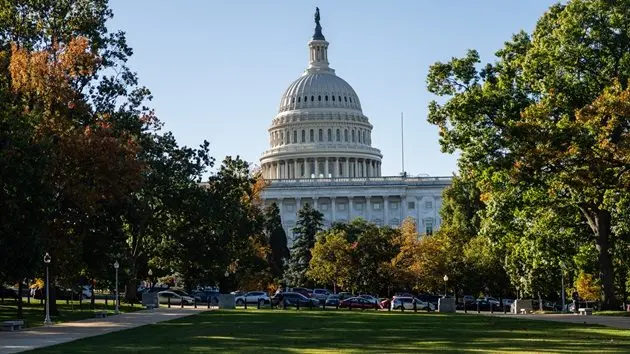(NEW YORK) — Latino and immigrant lawmakers are sounding the alarm as their school districts brace for deportations in the second Trump administration.
“Think about that — that nothing is off limits, that raids could go and happen in our public schools,” New York Rep. Nydia Velazquez said. “You know, that is the point: cruelty. You got to be heartless to say publicly that we are going to send ICE to our schools — heartless.”
In its first press conference of the 119th Congress, the Congressional Hispanic Caucus condemned President Donald Trump’s immigration executive orders and the Department of Homeland Security revoking long-standing restrictions that thwarted Immigration and Customs Enforcement from conducting raids on schools and other sensitive areas.
“[Trump] says he’s targeting criminals, but he just removed the restrictions that stopped ICE from conducting raids on schools, on hospitals and in churches,” Texas Rep. Joaquin Castro said at the more-than-hourlong presser. “I would ask you who he believes among those kids is a criminal sitting in a first grade class. Who are the criminals that he’s going after in the Catholic Church, in the Presbyterian Church, in the nondenominational churches? Who are those criminals?”
Acting Homeland Security Secretary Benjamine Huffman said that to curb the “invasion” at the border, the policy is needed to “return the humanitarian parole program to its original purpose of looking at migrants on a case-by-case basis.”
“This action empowers the brave men and women in CBP and ICE to enforce our immigration laws and catch criminal aliens — including murders and rapists — who have illegally come into our country. Criminals will no longer be able to hide in America’s schools and churches to avoid arrest,” Huffman wrote in a statement on Tuesday.
ABC News contributor John Cohen said he’s worked in law enforcement and homeland security for over four decades and has not seen any intelligence or evidence to support that the majority of persons crossing the southern border are murderers, rapist, gang members or terrorists or that they are hiding in churches and schools.
According to education experts such as Immschools founder Viridiana Carrizales, whose organization partners with school districts to create more welcoming and safe schools for immigrant K-12 students, Trump’s large-scale operation is worrying some families who dealt with the “real fear” of deportations during Trump’s first term.
“They know that this has happened in the past,” Carrizales told ABC News.
“It could maybe pose a threat and become even more real, or even more heightened or intense, than what they [undocumented families] experienced in 2017,” she said.
The debate over immigration is now finding its way inside the classroom, especially in border states nationwide, for these lawmakers and their undocumented constituents.
In California, the San Diego and Fresno unified school districts, the state’s second and third largest districts, are actively sharing immigration support and resources so that its families know their rights.
During a board meeting on the district’s recommitment to being a welcoming environment, Fabiola Bagula, interim superintendent of the San Diego Unified School District, said students have to be met with “unwavering care” during uncertain times.
“You can hold the need for having some sort of radical immigration reform, but you also need to uphold the safety of each student that enters our buildings,” Bagula said.
California Rep. Juan Vargas, a Democrat, slammed DHS and Republicans for their stance on immigration.
“Schools, places of worship, and hospitals provide essential services to all,” Vargas posted on X. “They should not be sites of immigration enforcement.”
Immigrant sanctuary cities are also having to address the threat of ICE showing up at schools. New York City Public Schools on Friday circulated resources for what to do if ICE officers show up at schools. It is also holding a “Know Their Rights” town hall next week.
Texas lawmakers aim to prevent ICE raids from disrupting schools, too.
“Just because ICE comes knocking on the door doesn’t mean you have to open it,” Texas Rep. Sylvia Garcia said.
Garcia told ABC News she is holding a “Know Your Rights” workshop on Capitol Hill next week with representatives from the Houston Independent School District.
“We’ve embarked on an education campaign to make sure that the school districts know what they should or shouldn’t do,” Garcia said. “I don’t know what they’re [DHS] going to do with them, but just because they’re going to send them to school doesn’t mean school stops. So I think there’s some do’s and don’ts, there’s some rights and responsibilities. And what’s important is an education campaign, and that’s what we’re doing now.”
The deportation plans exacerbated Texas educator and DACA recipient Karen Reyes’ and her students’ anxieties.
“I sometimes find myself thinking ‘Will my family experience this? Will my students? How will I explain what deportation is if it impacts someone in my classroom?'” Reyes said in a statement obtained by ABC News.
The National Parents Union also condemned the announcement allowing law enforcement to make arrests at schools.
“Law abiding individuals and their families should be treated humanely and with dignity,” the union wrote in a statement. “The decision to go after families in safe places sends a disgraceful message that threatens to emotionally scar young children whose families may be deported and other young children caught up in the crossfire.”
Meanwhile, Washington Rep. Emily Randall is working with school districts to confront the challenges ahead.
“This is only making students feel less safe in their classrooms and families less safe sending their kids to school,” she said. “Now that schools are no longer safe, folks are even more concerned, so we are having some of those conversations [with school leaders].”
Copyright © 2025, ABC Audio. All rights reserved.






